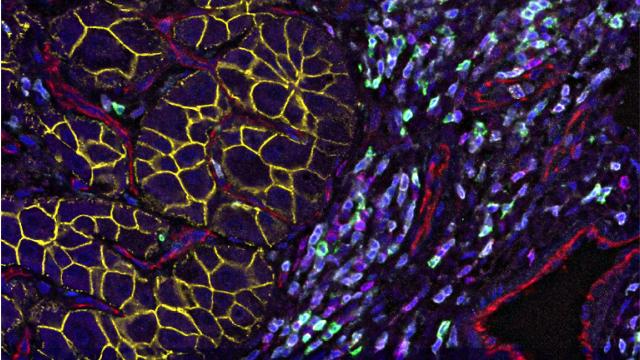
A tumor cell community in a hepatocellular carcinoma, a type of liver cancer. Source: NCI.
The beginnings of liver cancer, known as hepatocarcinogenesis, are as complex and nuanced as the organ itself, often involving a convergence of factors involving chronic liver disease, inflammation and fibrosis. Communications between hepatocytes (specialized cells that represent nearly 80% of the total liver mass) and Kupffer cells (a type of immune cell that resides in the liver) are known to either drive or suppress hepatocarcinogenesis, though there is much debate about the how and why.
Shp2 is a protein domain within the Src oncogene, and associated with multiple types of cancer, from breast and lung to oral and blood. Indeed, Shp2 appears involved in many diseases, and much work has focused on treatments that inhibit Shp2 and, presumably, the development of cancers.
But in a new paper, published February 22, 2023 in the journal Cellular and Molecular Gastroenterology and Hepatology, a team led by UC San Diego scientists found that Shp2 loss in hepatocytes or Kupffer cells resulted in a pro-tumor microenvironment in mouse models. If Shp2 loss occurred in both types of cells, the situation was even worse.
The authors said the findings underscore the complexities of cancer and, in the case of liver cancer at least, argue for caution and more research, keeping in mind that drugs that target Shp2 may not work as intended.
— Scott LaFee